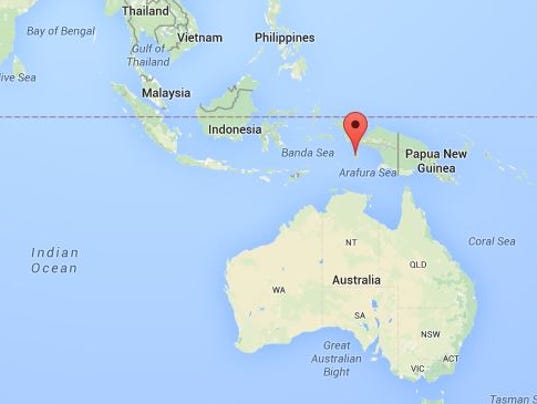Do slaves catch the seafood you eat? AP tracked supply chain of slave-caught fish to US
Mar 25, 2015
A yearlong investigation into forced labor and trafficking in Southeast Asia's fishing industry led an Associated Press team to Benjina, a small town that straddles two islands in the far reaches of eastern Indonesia. There journalists interviewed more than 40 current and former slaves, mostly from Myanmar, also known as Burma. Many said they had been forced to work on boats overseen by Thai captains under extremely brutal conditions. They were paid little or nothing at all, and some were at sea for months or years at a time.
The AP also found a locked cell with eight slaves inside, and handed a video camera to a dockworker, himself a former slave, to take close-up footage. Under the cover of darkness, the AP team used a small wooden boat to approach a trawler with slaves who yelled to them, pleading for help to go home.
Reporters were led to a jungle-covered graveyard that held the bodies of slaves, according to villagers and nonprofit officials. They interviewed three men who said they had escaped into the island's jungle interior, and also spent a night sleeping in the forest on an adjacent island with other runaway slaves from Benjina.
The AP watched slave-caught fish being loaded onto a refrigerated cargo ship bound for Thailand. They tracked the reefer's 15-day journey using satellite signals and met the vessel in Samut Sakhon, Thailand, where they saw the seafood unloaded into dozens of trucks over four nights. The journalists followed the rigs to processing factories, cold storage facilities and Thailand's largest wholesale fish market.
The AP then worked to establish a chain, using U.S. Customs documents showing Thai companies that export to the U.S. The food goes to Europe and Asia as well as the U.S., but the AP was able to gather most information on specific companies in America, where custom records are public.
To ensure the safety of the men quoted, photographed or videotaped in the story, the International Organization for Migration and Indonesian Marine Police were alerted about the men and then worked to move them away from Benjina. They are now waiting for their cases to be processed so they can return home to Myanmar, but hundreds of others remain stranded in Benjina and on surrounding islands.
wptv.com/news
Mar 25, 2015
A yearlong investigation into forced labor and trafficking in Southeast Asia's fishing industry led an Associated Press team to Benjina, a small town that straddles two islands in the far reaches of eastern Indonesia. There journalists interviewed more than 40 current and former slaves, mostly from Myanmar, also known as Burma. Many said they had been forced to work on boats overseen by Thai captains under extremely brutal conditions. They were paid little or nothing at all, and some were at sea for months or years at a time.
The AP also found a locked cell with eight slaves inside, and handed a video camera to a dockworker, himself a former slave, to take close-up footage. Under the cover of darkness, the AP team used a small wooden boat to approach a trawler with slaves who yelled to them, pleading for help to go home.
Reporters were led to a jungle-covered graveyard that held the bodies of slaves, according to villagers and nonprofit officials. They interviewed three men who said they had escaped into the island's jungle interior, and also spent a night sleeping in the forest on an adjacent island with other runaway slaves from Benjina.
The AP watched slave-caught fish being loaded onto a refrigerated cargo ship bound for Thailand. They tracked the reefer's 15-day journey using satellite signals and met the vessel in Samut Sakhon, Thailand, where they saw the seafood unloaded into dozens of trucks over four nights. The journalists followed the rigs to processing factories, cold storage facilities and Thailand's largest wholesale fish market.
The AP then worked to establish a chain, using U.S. Customs documents showing Thai companies that export to the U.S. The food goes to Europe and Asia as well as the U.S., but the AP was able to gather most information on specific companies in America, where custom records are public.
To ensure the safety of the men quoted, photographed or videotaped in the story, the International Organization for Migration and Indonesian Marine Police were alerted about the men and then worked to move them away from Benjina. They are now waiting for their cases to be processed so they can return home to Myanmar, but hundreds of others remain stranded in Benjina and on surrounding islands.
wptv.com/news








Comment